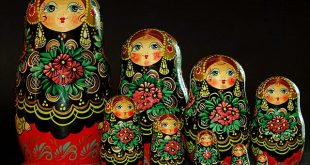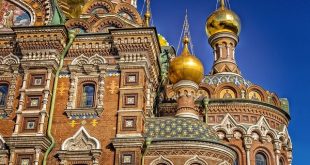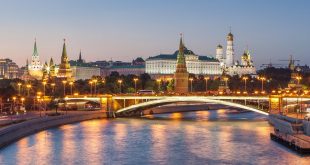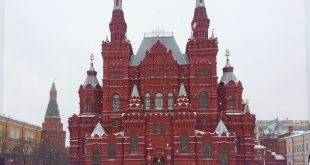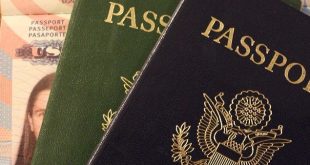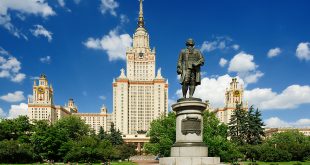Russia is among the most attractive destinations for postgraduate students from all over the world. Learn below what makes the higher education system in Russia one of the strongest in the world.
It also gives the student an international experience, as it is a country of power. That’s why studying master’s degree in Russia is internationally recognized. This is in addition to the low cost of living in the country.
The universities in Russia offer wonderful programs, with regard to engineering and health.
This is in addition to enabling the student to choose between different fields in studying master, including management, finance, information design, political sciences, international trade, computer science, and mathematics.
Check our article about the top universities in Russia.
Table of Contents
Easiness to Adapt
Russia is a multinational country. It includes citizens from different countries, cultures, and ethnics.
You can find more than 200 ethnic groups speaking more than 100 languages with different accents in Russia.
The Russian constitution guarantees freedom of religion. So, you will find Muslims, Christians, Buddhists, and representatives of other religions live together in peace and harmony, which comforts many foreigners coming to Russia.
Moreover, Russia has long experience in training the foreign students to adapt.
Joining a Russian University
Most of the Russian universities teach in Russian.
Students who are willing to study masters in Russia must have basic knowledge in the Russian language before applying. This is mandatory for all the foreign students to take a Russian language course as a part of the curriculum, unless they prove they do not need it.
Moreover, foreign students can get a temporary job while studying in a masters program. Students shall check first with the employers if they have a permit to hire foreign students, and to work legally.
Education System in Russia
Although Russian constitution guarantees free education for all its citizens, accessing the post-secondary higher education is very competitive. The governmental sector in charge of the education system in Russia strongly focuses on the earned scientific and technological degrees.
Students who want to join such fields must have the competency and excellent grades, to be able to join a Russian university.
Russia is currently in the process of transferring the traditional higher education degree model into a more compatible one with the western model. In 2003, Russia signed the Bologna Declaration, paving the way for the government to enact a new law. In other words, the five-year degree model switched into the four-year bachelor degree followed by a master’s degree.
However, the post-doctorate degree still maintains the traditional pattern the Soviet Union adopted 90 years ago. As for the PhDs in Russia, they are defined according to the depth of a student’s personal achievements in scientific research.
Bachelor and Specialist’s degrees
Upon completion of their secondary education, students can either apply for a Bachelor or a Specialist’s degree. The Bachelor’s degree needs the completion of 4 years full-time study, while the Specialist’s degree is given after at least 5 years of study. This degree focuses on practical education in any field except medicine studies.
Master’s degree
The study for a master in Russia lasts 2 years, with one year of research and an education including practice and the defense of a thesis. The master’s degree allows students in Russia to apply for a PhD degree.
Postgraduate education
Postgraduate studies in Russia require students to get two degrees to confirm their status as a scientist. These studies can only take place at a university or a scientific institute. When the first part of their postgraduate education is completed, students earn a Candidate of Science’s degree.
A doctorate degree, on the other hand, is awarded to Candidates of Science after an additional 2 to 4 years study in the postgraduate education.
MBA in Russia
MBA degree has become more and more popular in Russia during the recent years among international students. This has helped the qualifications in higher education in Russia to get more international recognition and acceptance. Also, this has raised the number of international students who choose Russia as their study destination.
Types of higher education institutions in Russia
There are 3 kinds of higher education institutions in Russia, namely universities, academies and institutes.
Universities
Universities in Russia are the leading higher education institutions in the country. They are divided into federal, flagship, and national research universities. Universities aim to develop education, science and culture by offering programs for all levels of under and postgraduate studies and carrying out fundamental and applied research.
10 institutions in Russia have the status of federal universities. Their purpose is to train highly skillful staff for priority areas of research, production and economy in the country.
Moreover, there are 33 flagship universities which focus on the development of the Russian region. They do so by training labor-market graduates who then will work at the regional economic level, implementing educational and innovative project with the region’s main businesses.
National research universities focus on training highly-qualified graduates who will work in the research and technology main areas. There are 29 universities of national research in Russia.
Academies
Academies in Russia provide training programs at all levels of higher education. They offer studies in science, technology, economics or law. Their aim is to advance education, science and culture in Russia through fundamental and applied research.
Institutes
Institutes in Russia can be an independent institution or parts of universities or academies. They offer educational programs at all higher education levels and conduct research in several areas of study. They also provide continuing education in the field of humanities, culture, technology and science.
Also learn about our 10 reasons to go study in Russia for international students




 Aljawaz Your guide to study abroad
Aljawaz Your guide to study abroad

